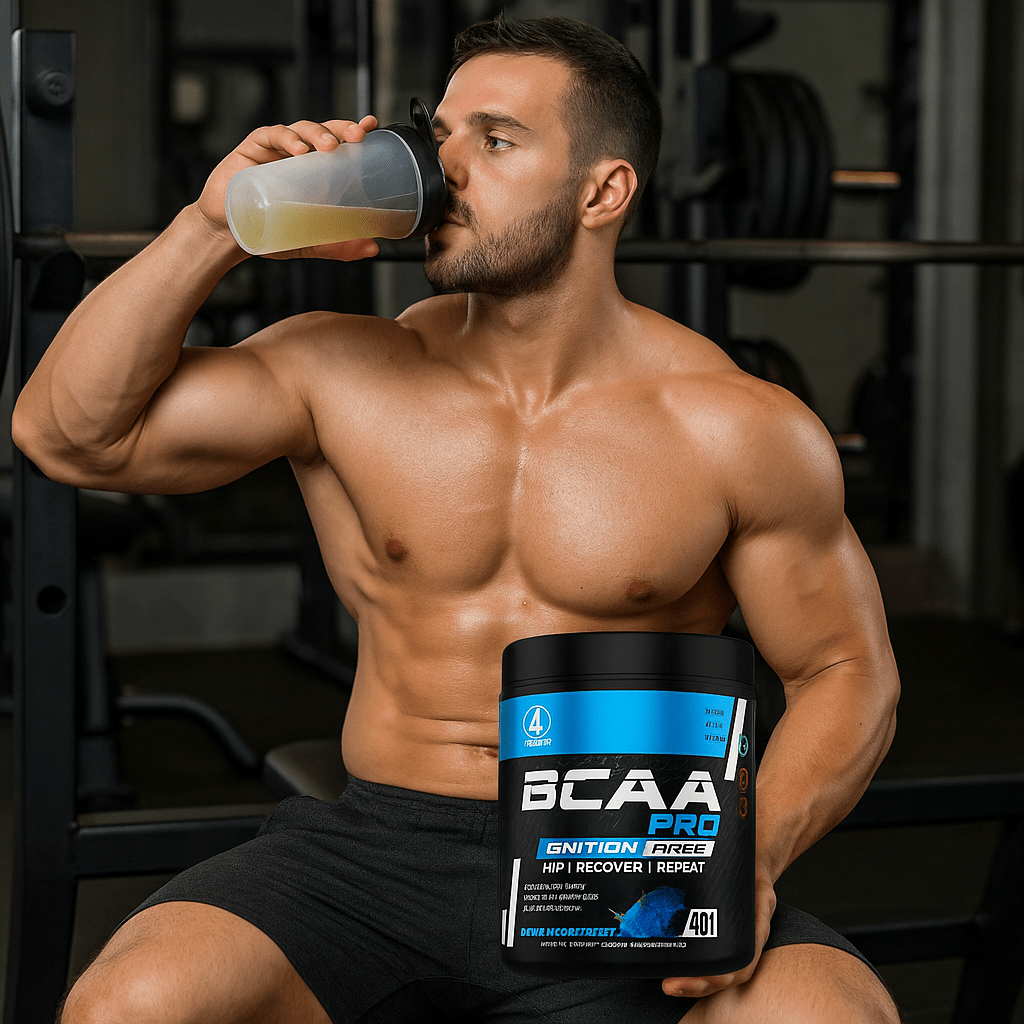Introduction
When it comes to muscle growth, recovery, and performance, both BCAAs (Branched-Chain Amino Acids) and whey protein are well-known supplements among fitness enthusiasts. But a common question arises: “Why should I take BCAA supplements if my whey protein already contains them?” To answer this, we need to dive into the specific roles of each supplement, how they interact, and when it makes sense to use both.
This guide explores the differences, benefits, ingredients, and usage of BCAA and whey protein, and provides clarity for anyone looking to enhance their results through strategic supplementation.
What Are BCAAs?
Understanding Branched-Chain Amino Acids
BCAAs refer to three essential amino acids:
-
Leucine
-
Isoleucine
-
Valine
These are termed essential because your body cannot produce them; they must be obtained through diet or supplements. BCAAs play a key role in:
-
Stimulating muscle protein synthesis
-
Reducing muscle soreness
-
Preventing muscle breakdown
-
Supporting endurance and performance during workouts
You can find them in protein-rich foods and supplements like Acacia Whey Totale, but many athletes choose to supplement BCAAs separately.
What Is Whey Protein?
A Complete Source of Amino Acids
Whey protein is a high-quality, fast-digesting protein derived from milk during the cheese-making process. It contains all nine essential amino acids, making it a complete protein. Most whey proteins, such as Acacia Whey Totale, naturally contain BCAAs—usually around 5–6 grams per serving.
Whey protein helps:
-
Build lean muscle mass
-
Support muscle recovery
-
Improve strength and endurance
-
Meet your daily protein intake goals
BCAA vs Whey Protein: Key Differences
| Feature | BCAAs | Whey Protein |
|---|---|---|
| Composition | 3 essential amino acids | All 9 essential amino acids |
| Digestion | Rapid and partial | Rapid and complete |
| Best For | Intra-workout & recovery | Post-workout and daily protein |
| Caloric Content | Low | Moderate |
| Goal | Preserve muscle & energy | Build muscle & recover fully |
Keyword Insight:
Both “BCAA benefits” and “Whey protein for muscle gain” are high-ranking SEO keywords, making this comparison perfect for e-commerce product pages and fitness blogs.
Why Supplement BCAAs Separately?
1. Timing & Efficiency
Whey protein takes time to digest. Although it contains BCAAs, they are released gradually. Free-form BCAA supplements are absorbed faster, making them ideal for intra-workout or pre-workout consumption.
Internal Link Suggestion:
Explore our fast-absorbing Acacia BCAA Pro designed for peak training performance.
2. Targeted Muscle Support
BCAAs—especially leucine—directly stimulate muscle protein synthesis. When consumed during workouts, BCAAs help:
-
Reduce fatigue
-
Minimize muscle damage
-
Enhance endurance and recovery
These benefits are amplified in fasted training or low-calorie diets where preserving muscle is crucial.
3. Low-Calorie Supplement Option
Whey protein, while effective, also includes calories, carbohydrates, and fats depending on the brand. If you’re on a cutting diet, BCAA supplements offer muscle support without the added calories.
Benefits of Combining BCAA and Whey Protein
1. Comprehensive Recovery
Combining whey protein post-workout and BCAAs during your workout provides a complete muscle-building strategy—instant energy from BCAAs and sustained repair from whey.
2. Improved Workout Intensity
Supplementing BCAAs before or during workouts can help delay fatigue, allowing for more intense training sessions.
Internal Link Suggestion:
Try our Acacia BCAA Pro formulated for advanced endurance and hydration.
3. Greater Protein Utilization
Consuming BCAAs separately may enhance the anabolic response to protein intake, helping your muscles utilize the amino acids more efficiently.
When Should You Take BCAAs?
Ideal Timing for Maximum Results
-
Pre-Workout: Boost energy and prevent muscle breakdown
-
Intra-Workout: Sustain performance and reduce soreness
-
Post-Workout (with Whey): Maximize muscle protein synthesis
Even if your whey protein includes BCAAs, timing and absorption rate make standalone BCAA supplements valuable, especially if you’re serious about training.
Choosing the Right BCAA Supplement
Look for:
-
2:1:1 ratio of Leucine to Isoleucine and Valine
-
Added electrolytes for hydration
-
Zero sugar or artificial fillers
-
Instantized formula for easy mixing
Product Tip:
Acacia BCAA Pro offers clinically dosed BCAAs with hydration support—perfect for both cutting and bulking phases.
Common Myths: BCAA and Whey Protein
Myth 1: “Whey Protein is Enough”
Fact: While whey is excellent post-workout, BCAAs provide intra-workout benefits that whey protein can’t offer in real-time.
Myth 2: “Too Much Protein is Harmful”
Fact: Studies show that moderate to high protein intake (1.6–2.2g/kg body weight) is safe and effective for muscle growth.
Final Verdict: Should You Take Both?
Yes. If your goal is maximum performance, faster recovery, and lean muscle gains, combining whey protein and BCAA supplements is the smart approach.
Whey protein provides overall recovery and growth, while BCAAs give you the intra-workout endurance and muscle protection needed during intense sessions.
Conclusion
If you’re aiming to maximize muscle gains, improve recovery, and perform better, using both whey protein and BCAAs is the ideal strategy. They work best together, not as substitutes.
BCAAs shine during your workout, while whey protein takes over afterward. So next time you’re packing your gym bag, include your Acacia Whey Totale.



